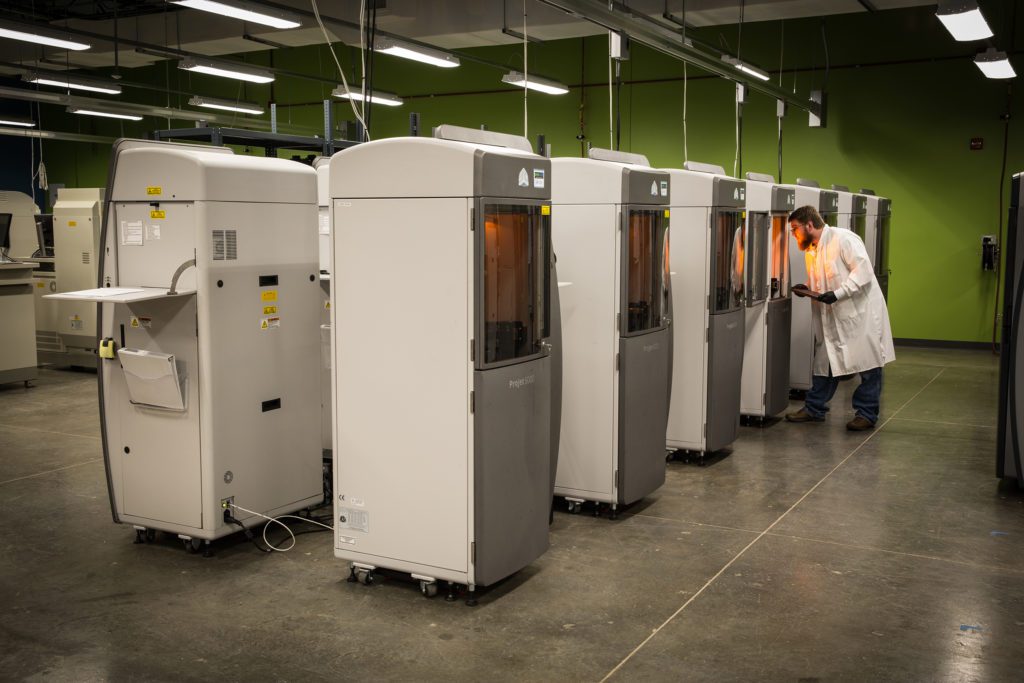Rob Bodor became president and CEO of a digital-manufacturing leader in March and promptly set a human pace to match the speed and energy of the rapid-prototyping and -production capabilities that have made his company a leader of the digital-manufacturing era. And what’s driving Bodor’s fast cadence is the increasing demands of his customers.
Protolabs stumbled during Covid, with revenues dipping slightly to $434 million in 2020. After serving as CEO of the Maple Plain, Minnesota-based manufacturer for seven years, Vicki Holt retired in March. And Bodor, who had been chief of Protolabs’ largest region, the Americas, for six years, stepped up to the helm to succeed Holt.
Since then, Bodor has completed Protolabs’ important $280-million acquisition of 3D Hubs, a leading online-manufacturing platform. He has overseen the rollout of the company’s new digital-quoting platform in the United States. Bodor has launched extensions to Protolabs’ CNC business. His team had added capabilities known as “vapor smoothing” to its 3D-printing tool bag in Europe, which improves the finish and cosmetic appearance of plastic parts.
And Bodor has listened to customers who actually were requesting longer lead times from Protolabs rather than the quick-turnaround service – sometimes same-day service – that secured the company’s place in the quickly changing manufacturing firmament.
“We were hearing from customers who love our quality and reliability and service when they’re using us for urgent needs,” Bodor told Chief Executive. “But they wondered if they could be more planful, with longer lead times at commensurate lower price points, when they have repeat orders and more production needs. We’ve expanded our range of offerings to accommodate that and have seen a nice uptick in demand in the last few months.”
Protolabs produces custom components quickly with automated 3D-printing, CNC machining, sheet-metal fabrication and injection-molding processes. Its digital approach to manufacturing enables accelerated time to market, reduces manufacturing costs and enables supply-chain agility throughout the product life cycle.
Online pioneering certainly suited Protolabs well during Covid. “It’s been the biggest supply-chain disruption in a generation and has driven the acceleration of adoption of B2B e-commerce as a means of doing business and diversifying the supply chain,” Bodor said. “Procurement professionals couldn’t go in person to visit suppliers and use their normal processes, so a lot of them went online. We’ve been online for two decades.”

Protolabs’ sexiest capabilities, of course, are in 3-D printing, where the company has focused on engineering for prototypes and end-use parts with high reliability and process excellence, Bodor said. As manufacturers’ use of 3-D printing has grown with the increasing sophistication of equipment and techniques, and falling costs, Protolabs has stayed ahead of the democratization of additive manufacturing by ensuring that it masters applications in all emerging materials for a huge variety of industry verticals.
“Customers can bring one [3-D] technology in house—but are they investing in the forefront like we are, learning and become expert in new technologies and being able to provide high-quality parts?” Bodor said. “We don’t want to play in highly commoditized aspects [of additive manufacturing] but to stay at the forefront, adopting and revealing new technologies and providing our expertise in those technologies.”
Bodor said the advancement of 3-D printing also is bringing more customers to the point where they need Protolabs’ help figuring out how to use the technology in combination with other techniques such as injection molding.
“Even if they’re molding the part in house, we’re giving them design insights for the manufacturability of the molding, so when we 3-D print it for them, they’re using the right design constraints. It’s a better proxy for the finished part than it otherwise would be. And it prevents [customers] from getting into trouble in the later stages of a new-product launch process.”
Bodor also has been dealing with urgencies such as the rising price of plastic resins because of shortages and supply-chain kinks. “In a few cases we’ve adjusted” prices, he said. “It’s something we’re managing through like so many companies now. We’re just doing the best we can to make sure we’re being thoughtful.”







